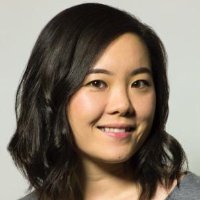Superheroes. That’s how my six-year-old cousin responded when asked what gets him excited. Rescuing the good people and fighting off the bad. Lurking in the shadows to surprise unsuspecting villains. Beaming yellow lasers, flying through the clouds, and catching crashing planes mid-air. After listing all the reasons why superheroes are so awesome, he looked me straight in the eyes and said, “I’m going to be a superhero when I grow up.”
When my cousin grew older, his response to the question changed. Instead of fictional superheroes, he now sought inspiration from people like Dr. Martin Luther King Jr., Queen Liliuokalani, the Dalai Lama, Rosa Parks, and Nelson Mandela. This time, however, he no longer aspired to be like them.
This isn’t because he had other ambitions. Rather, it’s because these people occurred to him as otherworldly, once-in-a-lifetime leaders. They occurred to him as equally untouchable as fictional superheroes occur to me.
But, what I really heard him saying was, “I don’t think I can make a difference (or at least not a big one), so why try?”
There’s a ton to unpack there, for all kinds of reasons. But, several years later, here’s what really stands out to me: There is a general tendency to deify and distance ourselves from people we perceive to be great leaders. There are the people who can lead change, and then there’s the rest of us.
At the time, my cousin’s response seemed fairly reasonable to me. After all, Kings’ bravery, wisdom, and contributions to the world, like those other civil rights leaders, are paramount. I cringe at the thought of comparing their capacity to mine.
Yet, as I think about the possibility of learner-centered education—to create an equitable and loving future for every single child—and what it’ll take to get there, I can’t help but question whether we’ll ever get there if we’re always waiting for someone else.
If not us, then who?
In our current cohort of the Learning Lab Orientation, a participant noted a common misperception of the learner-centered mindset is that its sole focus is on the individual child, as if a learner works in a bubble detached from their surroundings. It’s about their happiness, their learning, and their success.
Instead, she declared, the learner-centered mindset is about seeing each child within community. Having the experience of authentically relating to each other and the world, caring about the well-being of the whole, is what collectively leads each child to discover joy, what matters to them, and fulfillment now and down their winding paths.
In other words, you matter and community matters. We are mutually entwined.
Having the experience of authentically relating to each other and the world, caring about the well-being of the whole, is what collectively leads each child to discover joy, what matters to them, and fulfillment now and down their winding paths.
Lindsy Ogawa, Director of Practice and Field Advancement
Keeping with that mindset, it’s that kind of mutualism and interdependence that creates the experience of being connected to those around us. There’s an increasing awareness that King and others were not powerful exclusively because they were “exceptional.” Nor is it the pedestal on which they stood. Unlike superheroes, who use special powers to save schools and trains as problems arise, leadership within community isn’t striving only to prevent immediate disaster. Unlike superheroes who exist to save everyday citizens, leadership within community isn’t aimed at “saving” you or the learners you serve.
Leadership within community is about supporting others to recognize their own leadership within community. It’s about choosing to be in relationship—listening and having conversations that can make a difference.
It’s about grabbing coffee with a colleague who shares a similar concern, meeting at a park with your retired neighbor who is searching for what’s next, or hopping on the phone with a group of passionate teenagers to exchange stories—the kinds of conversations where new opportunities and possibilities emerge. Then, it is about doing it again and again, with more and more people.
In this way, leadership in community seeks to enhance and transform our social fabric by building capacity through communities owning, shaping, weaving, and committing to create, in our case, a more equitable, loving, and whole future.
Leadership within community is about supporting others to recognize their own leadership within community.
Lindsy Ogawa, Director of Practice and Field Advancement
Does this work still sound massive? Definitely. But, the kicker is the realization that shaping our community doesn’t require any one of us to be a fictional superhero or an idol serving as the one voice of the learner-centered movement.
This is about recognizing that you, as a learner-centered leader in community, are already making a difference. And, it’s about recognizing that you aren’t alone in that possibility. Again, you matter, community matters, and we are mutually entwined.
Leading Together in Community
So, this work of transforming one of the country’s most entrenched institutions will require us to find community with each other. Otherwise, not only will it be too daunting, but it won’t actually be an authentic match for the learner-centered way of being we’re trying to bring into reality. This is why I love the work at Education Reimagined of creating spaces for that community to form, grow, and thrive.
“It’s a lonely thing trying to transform education when most want to tweak it. In the Learning Lab, there’s a sense of, ‘I trust you, I know you, I can be honest with you because our commitments are shared, and vice versa.’ We ask deeper and harder questions of each other that need to be asked [to continue acting on our commitments for every child].” —Trace Pickering, Executive Director and Co-Founder of Iowa BIG
When I first joined the Learning Lab, I was struck by the people in it. There were teenagers, district administrators, principals, learning facilitators, policy advocates, and organizational leaders focused on the well-being of learners from across the country. Initially, I was eager to engage with (and maybe even a bit intimidated to be surrounded by) all of these leaders.
But, one conversation after the next, our stories began to unfold and our unifying commitment began to reveal itself. Our experiences, while different, were building on each other’s. Our stories and questions were mixing and melding together. I felt connected to them and us to each other. We were in community—connected by a vision that enabled us to fully express our leadership in this national community to create an equitable and loving future for every learner of every background and circumstance.
Our commitments are too big to be acted upon alone. It is going to take each of us to bring learner-centered education to every zip code.
Lindsy Ogawa, Director of Practice and Field Advancement
Let’s face it, our commitments are too big to be acted upon alone. It is going to take each of us to bring learner-centered education to every zip code. And, like Dr. Martin Luther King Jr., Queen Lili?uokalani, the Dalai Lama, Rosa Parks, and Nelson Mandela, these leaders each found their own way to lead and did so amongst other heroes, seeing and breathing a shared vision to life.
When we are connected in a local community, many things are possible. When we are connected as a national community, we can transform the social fabric of our world together.
If you are committed to contributing your leadership to the creation of an equitable, learner-centered future, we invite you to join the Learning Lab Orientation—an entryway into a growing national community of 850+ learner-centered people. The insights and ideas you each bring to this collective work have the power to change the lives of learners in your community and beyond.

